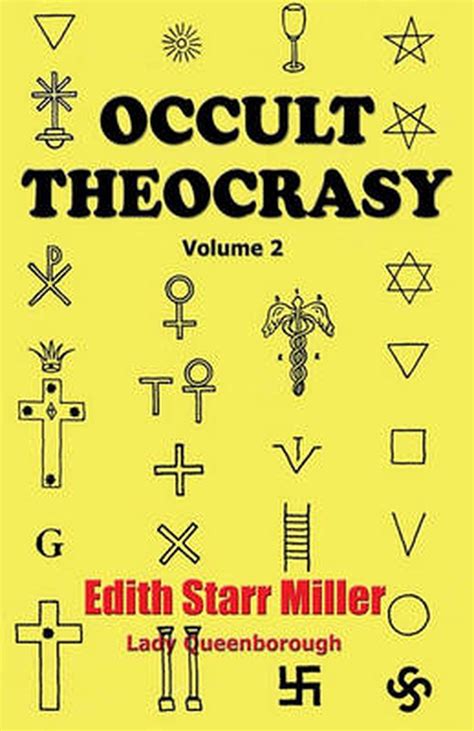Top 1200 Latter Quotes & Sayings - Page 18
Explore popular Latter quotes.
Last updated on December 12, 2024.
The power of theocrasy or exercise of government rule over the masses by a hierarchy of priests or adepts rested on its dual system of teaching, namely : Exoterism and Esoterism, the former a code of discipline of the thought and mode of life of the masses; the latter the hierarchic school wherein were trained the chosen adepts destined to safeguard the rules imposed upon the people by the high priests.
Chronological snobbery is the uncritical acceptance of the intellectual climate common to our own age and the assumption that whatever has gone out of date is on that account discredited. You must find why it went out of date. Was it ever refuted (and if so by whom, where, and how conclusively), or did it merely die away as fashions do? If the latter, this tells us nothing about its truth or falsehood.
Though violence is not lawful, when it is offered in self-defense or for the defense of the defenseless, it is an act of bravery far better than cowardly submission. The latter befits neither man nor woman. Under violence, there are many stages and varieties of bravery. Every man must judge this for himself. No other person can or has the right.
Il y a deux sortes d'esprits, l'un ge ome trique, et l'autre que l'on peut appeler de finesse. Le premier a des vues lentes, dures et inflexibles; mais le dernier a une souplesse de pense e. There are two kinds of mind, one mathematical, the other what one might call the intuitive. The first takes a slow, firm, inflexible view, but the latter has flexibility of thought.
Among the fundamental likeness between the Revolutionary Republicans and the Anarchists is the recognition that the little must precede the great; that the local must be the basis of the general; that there can be a free federation only when there are free communities to federate; that the spirit of the latter is carried into the councils of the former, and a local tyranny may thus become an instrument for general enslavement.
There is an error common to both oligarchies and to democracies: in the latter the demagogues, when the multitude are above the law, are always cutting the city in two by quarrels with the rich, whereas they should always profess to be maintaining their cause; just as in oligarchies the oligarchs should profess to maintain the cause of the people, . .
There is a great difference, whether the poet seeks the particular for the sake of the general or sees the general in the particular. From the former procedure there ensues allegory, in which the particular serves only as illustration, as example of the general. The latter procedure, however, is genuinely the nature of poetry; it expresses something particular, without thinking of the general or pointing to it.
The organism is thus being preconditioned for the spontaneous acceptance of what is offered. Inasmuch as the greater liberty involves a contraction rather than extension and development of instinctual needs, it works for rather than against the status quo of general repression - one might speak of "institutionalized desublimation". The latter appears to be a vital factor in the making of the authoritarian personality of our time.
No true Latter-Day Saint, while physically or emotionally able will voluntarily shift the burden of his own or his family's well-being to someone else. So long as he can, under the inspiration of the Lord and with his own labors, he will supply himself and his family with the spiritual and temporal necessities of life.
It is so wonderful to our neurologists that a man can see without his eyes, that it does not occur to them that is just as wonderful that he should see with them; and that is ever the difference between the wise and the unwise: the latter wonders at what is unusual, the wise man wonders at the usual.
An officer should never speak ironically or sarcastically to an enlisted man, since the latter does not have a fair chance to answer back. The use of profanity and epithets comes under the same headings. The best argument for a man keeping his temper is that nobody else wants it; and when he voluntary throws it away, he loses a main prop to his own position.
Obviously, the real issue has nothing to do with fear itself, but, rather, how we hold the fear. For some, the fear is totally irrelevant. For others, it creates a state of paralysis. The former hold their fear from a position of power (choice, energy, and action), and the latter hold it from a position of pain (helplessness, depression, and paralysis).
Fetishes are literally viewed as fake forms of attraction. The fetish concept is used to delegitimatize attraction to any and all bodies that are not considered normative. This is why people are accused to have transgender fetishes and fat fetishes and disability fetishes, but never cisgender fetishes, thin fetishes or able-bodied fetishes. Even in cases in which the person in question exclusively partners with these latter groups.
About Mike the construction worker, friend of Roark: "He worshipped expertness of any kind. He loved his work passionately and had no tolerance for anything save for other single-track devotions. He was a master in his own filed and felt no sympathy except for mastery. His view of the world was simple: there were the able and there were the incompetent; he was not concerned with the latter."
Isn't it curious how one has only to open a book of verse to realise immediately that it was written by a very fine poet, or else that it was written by someone who is not a poet at all. In the case of the former, the lines, the images, though they are inherent in each other, leap up and give one this shock of delight. In the case of the latter, they lie flat on the page, never having lived.
Typically, the hero of the fairy tale achieves a domestic, microcosmic triumph, and the hero of myth a world-historica l, macrocosmic triumph. Whereas the former-the youngest or despised child who becomes the master of extraordinary powers-prevails over his personal oppressors, the latter brings back from his adventure the means for the regeneration of his society as a whole.
After the Church of Jesus Christ of Latter-day Saints was organized, there were only two churches upon the earth. They were known respectively as the Church of the Lamb of God and Babylon. The various organizations which are called churches throughout Christendom, though differing in their creeds and organizations, have one common origin. They all belong to Babylon
Imperial politics represents the conquest of domestic politics and the latter's conversion into a crucial element of inverted totalitarianism. It makes no sense to ask how the democratic citizen could 'participate' substantively in imperial politics; hence it is not surprising that the subject of empire is taboo in electoral debates. No major politician or party has so much as publicly remarked on the existence of an American empire.
I have so great a contempt and detestation for meanness, that I could sooner make a friend of one who had committed murder, than of a person who could be capable, in any instance, of the former vice. Under meanness, I comprehend dishonesty; under dishonesty, ingratitude; under ingratitude, irreligion; and under this latter, every species of vice and immorality in human nature.
His manners were less pure, but his character was equally amiable with that of his father. Twenty-two acknowledged concubines, and a library of sixty-two thousand volumes, attested the variety of his inclinations, and from the productions which he left behind him, it appears that the former as well as the latter were designed for use rather than ostentation.
A cook she certainly was, in the very bone and centre of her soul. Not a....turkey....in the barn-yard but looked grave when they saw her approaching, and seemed evidently to be reflecting on their latter end; and certain it was that she was always meditating on trussing, stuffing and roasting, to a degree that was calculated to inspire terror in any reflecting fowl living.
What caricature is in painting, burlesque is in writing; and in the same manner the comic writer and painter correlate to each other; as in the former, the painter seems to have the advantage, so it is in the latter infinitely on the side of the writer. For the monstrous is much easier to paint than describe, and the ridiculous to describe than paint.
What is any political campaign save a concerted effort to turn out a set of politicians who are admittedly bad and put in a set who are thought to be better. The former assumption, I believe is always sound; the latter is just as certainly false. For if experience teaches us anything at all it teaches us this: that a good politician, under democracy, is quite as unthinkable as an honest burglar.
For indeed Christianity was complicit in the death of antiquity, and in the birth of modernity, not because it was an accomplice of the latter, but because it, alone in the history of the West, constituted a rejection of and alternative to nihilism's despair, violence, and idolatry of power; as such, Christianity shattered the imposing and enchanting facade behind which nihilism once hid, and thereby, inadvertently, called it forth into the open.
The truth is that we don't know much about the spiritual world except for what Scripture tells us, so it's unwise to think we can speak with clarity about what a divine being can or cannot do. The tools of analyzing the natural world are of no use for analyzing the supernatural world. For the latter we need rules of logic, and the supernatural beliefs of the biblical writers are quite defensible in that arena.
Though a censure lies against those who are poor and proud, yet is Pride sooner to be forgiven in a poor person than in a rich one; since in the latter it is insult and arrogance; in the former, it may be a defense against temptations to dishonesty; and, if manifested on proper occasions, may indicate a natural bravery of mind, which the frowns of fortune cannot depress.
Those who would assail the Book of Mormon should bear in mind that its veracity is no more dubious than the veracity of the Bible, say, or the Qur'an, or the sacred texts of most other religions. The latter texts simply enjoy the considerable advantage of having made their public debut in the shadowy recesses of the ancient past, and are thus much harder to refute.
I think there are a number of reasons, not least of which is the personality of the Queen [ Elizabeth II]. It's very easy to underrate her significance. I think she finds the Commonwealth and her position as Head of the Commonwealth infinitely more interesting than being the Queen of England, because she has no significant role in the latter.
Moreover, it is difficult to reconcile Hobbes’s distrust for the individual with his confidence in the altruistic nature of the individual or individuals who will oversee and control the Leviathan. Are not the latter also of flesh and blood? Hobbes seems to be saying that man’s nature cannot be trusted but the nature of a ruler or a ruling assembly of men can be trusted. How so?
It is better to have a cat and mouse game where the cat has the upper hand than a cat and mouse game where the mice are ruling. Because the latter means that the market participants are given free range. That was actually the big misconception of our national hero Ronald Reagan, who always talked about the magic of the market.
Stoutly as we may affirm that our disasters and vices are chargeable to luck, we never dream of ascribing our meritorious deeds, in the slightest degree to its agency. In such cases we quite unconsciously blink out of sight the magic power of the latter principle, so wondrous and all-controlling in its influence at other times, and coolly appropriate to ourselves not merely the lion's share, but the whole glory of our position.
When one of the down Easters boasted of not having any gray hair, but who was bald, Dad told the story of how St. Peter had given his choice of getting bald or getting gray and he chose the latter. Have never smoked, chewed nor used tea coffee or liquor except for medicinal purposes. The want of it is more than the worth of it.
But in many orders of beauty, particularly those of the finer arts, it is requisite to employ much reasoning, in order to feel the proper sentiment; and a false relish may frequently be corrected by argument and reflection. There are just grounds to conclude, that moral beauty partakes of this latter species, and demands the assistance of our intellectual faculties, in order to give it a suitable influence on the human mind.
My present and most fixed opinion regarding the nature of alcoholic fermentation is this: The chemical act of fermentation is essentially a phenomenon correlative with a vital act, beginning and ending with the latter. I believe that there is never any alcoholic fermentation without their being simultaneously the organization, development, multiplication of the globules, or the pursued, continued life of globules which are already formed.
The physicist, in his study of natural phenomena, has two methods of making progress: (1) the method of experiment and observation, and (2) the method of mathematical reasoning. The former is just the collection of selected data; the latter enables one to infer results about experiments that have not been performed. There is no logical reason why the second method should be possible at all, but one has found in practice that it does work and meets with reasonable success.
The god of the world is the gold and the silver. The world worships this god. It is all-powerful to them, though they might not be willing to acknowledge it. Now it is designed, in the providence of God, that the Latter-day Saints should show whether they have so far advanced in the knowledge, in the wisdom and in the power of God that they cannot be overcome by the god of the world. We must come to that point.
The world would have you believe that you are of worth only if you have money, a certain physical appearance, stylish clothes, or social position. The gospel assures you that your value is not dependent on your looks or material possessions. ... Part of what it means to be a Latter-day Saint is to know within your soul your eternal worth, who you really are, and why you are here on earth.
A computer is like a violin. You can imagine a novice trying ?rst a phonograph and then a violin. The latter, he says, sounds terrible. That is the argument we have heard from our humanists and most of our computer scientists. Computer programs are good, they say, for particular purposes, but they aren’t ?exible. Neither is a violin, or a typewriter, until you learn how to use it.
I think by the next generation either we'll have a lot of idiots who are just completely immersed in media and corporatized information, or we'll have people who enjoy media and corporatized information, but are more interconnected with human beings around the world ... And who share common goals and are willing to accept that they are a global citizen. I think the latter is more the direction.
To the shepherds alone was given all power to teach, to judge, to direct; on the faithful was imposed the duty of following their teaching, of submitting with docility to their judgment, and of allowing themselves to be governed, corrected, and guided by them in the way of salvation. Thus, it is an absolute necessity for the simple faithful to submit in mind and heart to their own pastors, and for the latter to submit with them to the Head and Supreme Pastor.
It has long been a source of wonder to me why the leading criminological writers--men like Edmund Lester Pearson, H. B. Irving, Filson Young, Canon Brookes, William Bolitho, and Harold Eaton--have not devoted more space to the Greene tragedy; for here, surely, is one of the outstanding murder mysteries of modern times--a case practically unique in the annals of latter-day crime.
The earliest religious texts in the West ascribe to humankind both a prehistory and a destiny among the gods. M. David Litwa presents a striking survey of the varieties the latter of these beliefs has had, both within and outside the Christian tradition. Becoming Divine reconstructs an accessible and fascinating mosaic of this too-long neglected idea, utilizing figures as disparate as Orphic cultists, Augustine, and Nietzsche.
The means of communication, the irresistible output of the entertainment and information industry carry with them prescribed attitudes and habits, certain intellectual and emotional reactions which bind the consumers to the producers and, through the latter to the whole social system. The products indoctrinate and manipulate; they promote a false consciousness which is immune against its falsehood...Thus emerges a pattern of one-dimensional thought and behavior.
At a time when many churches throughout the world are experiencing significant decreases in numbers, The Church of Jesus Christ of Latter-day Saints - though small in comparison with many others - is one of the fastest growing churches in the world. As of September 2013, the Church has more than 15 million members around the world.
If these Essays were worthy of being judged, it might fall out, in my opinion, that they would not find much favour, either with common and vulgar minds, or with uncommon and eminent ones: the former would not find enough in them, the latter would find too much; they might manage to live somewhere in the middle region.
A wound in the friendship of young persons, as in the bark of young trees, may be so grown over as to leave no scar. The case is very different in regard to old persons and old timber. The reason of this may be accountable from the decline of the social passions, and the prevalence of spleen, suspicion, and rancor towards the latter part of life.
The research worker, in his efforts to express the fundamental laws of Nature in mathematical form, should strive mainly for mathematical beauty. He should take simplicity into consideration in a subordinate way to beauty ... It often happens that the requirements of simplicity and beauty are the same, but where they clash, the latter must take precedence.
The technologists and entrepreneurs I know are generally good people. If they were given a choice, 'Do your job and eliminate normal jobs' or 'Do your job and create abundant opportunities,' they would choose the latter. Most of them would happily even take a small hit to do so. But this isn't a choice they're given.
I love telling truthful honest stories. I suppose I'd love the opportunity to be a superhero within a realistic dramatic piece. It would have opportunity for humor too of course. And ideally I would be the writer/director? (Though I suppose if I was, it is POSSIBLE I would give myself a meaty but smaller part so I could focus on the latter of my duties... Maybe).























































